"What seems to have happened now is that there are a lot of people who have an entirely different concept of the Imagination. It's not something they are inspired to share but rather something they use to justify the opposite. They don't owe their readers anything at all. Not good writing, not good stories, not honesty. They feel no obligation to learn the craft, to pay their dues, so to speak. All of the Gift seems to be something they feel entitled to receive rather than give. "
****************************************************************************************************************
Once again, I can't post this on my regular blog, because it feeds to Goodreads, and I'm pretty sure this would get me kicked off there.
Fortunately, you're free to skip this TL/DR rant and I'll never know. ;-)
So, here's what happened:
Irate author Greg Strandberg posted on his blog on Goodreads a screed against one particular reviewer there who goes by the name Humdinger C. Eggnoggin. 'Dinger, as I sometimes call him, writes mostly brief but often scathing negative reviews, and as far as I know all are based on a perusal of just the Kindle sample. Strandberg took issue with this, with 'Dinger's overall low average rating, and posted this:
https://www.goodreads.com/author_blog_posts/6794001-reviewing-only-the-look-inside
(If it has disappeared, never fear; I have a screen shot.) (Update: Yes, it has disappeared.)

Strandberg, unlike 'Dinger, was less than fully forthcoming: He failed to disclose that Humdinger C. Eggnoggin had reviewed his book,
https://www.goodreads.com/review/show/1020246999?book_show_action=true&page=1
based on the free sample, and found it lacking.
The book 'Dinger reviewed is The Hirelings. Apparently it's a sequel to something, but I'm not sure what. Nothing in the book's official description mentions a previous book, though the reviewer does.
'Dinger's 2-star Goodreads review is the only one the book had at that time; it has one rating on Amazon, a brief and not very enthusiastic 3-star comment. I have since added my Goodreads review as well.
Strandberg, who indulges the book's listing on Amazon with his own glowing, and some might say overbearing, praises, is apparently disappointed. By "disappointed," of course, I really mean butt hurt. So he wrote his nasty little blog post, put it up on Goodreads, and sat back to watch what he expected to be a roast of 'Dinger.
It didn't happen. Oh, someone came to Strandberg's defense, but more people pointed out that 'Dinger was doing nothing wrong . . . and that in fact Strandberg was in the wrong for calling out a Goodreads member.
Though both Strandberg and at least one of his defenders insisted the blog was nothing more than an opinion piece and did not attack (or, as one wrote, "attach"), and that no one had been called names, several people flagged the blog for violating Terms of Service's prohibitions against calling out other members/authors/reviewers. The post was subsequently removed either by or on the order of Goodreads.
In fact it was Strandberg who wrote -- and bolded himself for emphasis -- the following:
That’s why I’m glad we have people like Humdinger C Eggnoggin – dipshits that can make us all feel 10 times smarter!
And yes, Mr. Strandberg, just to repeat what I've already said: I took a screenshot so that when the blogpost disappears, you won't be able to claim you didn't write it.
It was Sunday night when all of this happened, and I was exhausted. I'd been at the computer all day. Instead of enjoying my week-end as a time of relaxation, I was trying to catch up on some personal work that had been neglected during the week. My eyes were dry and itchy, my back was tired, and my fingers were at their wit's end. When a GR friend alerted me to Strandberg's post, I read it and saw red. Fortunately, I'm old enough to know not to post in the heat of anger -- or butthurt -- so I wrote my piece and posted it somewhere safe.
After a brief night's sleep, I lay in bed this morning still thinking about what Strandberg had posted and what I had written in reply. And I realized there was much more to the story than what appeared on the surface.
And so here is my response to Greg Strandberg, greatly expanded from what a few of you saw last night:
Josh Olson still said it best.
http://blogs.villagevoice.com/runninscared/2009/09/i_will_not_read.php
Those of us who have been reading for a very long time, and especially those of us who have been reading unpublished and hitherto unpublishable manuscripts for a long time, don't need to read more than a couple of pages (at most!) to know the rest of the book is crap.
And some of us are brave enough to risk the bullshit comments from you butthurt "authors" who just can't bear the thought that your precious baby isn't going to be the next superstar.
None of you ever bitch about the thousands upon thousands upon thousands upon thousands of fake, bought, sockpuppetted 5-star reviews. Shall I link you to a few of the fiverr accounts of your own fellow authors who offer, for five fucking bucks, to post your own review of your own book under their account? Where's the outcry about that?
Where's the outcry about the hundreds and hundreds of review swap reviews, every effing one of 'em five effing stars, from authors reviewing each other because no one else will touch their pieces of garbage? They haven't read those books. Maybe they bought them, but they didn't read them.
Someone has to get out there and tell readers the goddess blessed truth -- There are a lot of crappy books out there. I'm one of those someones, and yes, I frequently review on the basis of a sample. And most of the time I don't give very many stars.
But I am so damned sick and fucking tired of being called a bully or a meanie or a troll or a liar or now a dipshit because I didn't read the whole piece of shit.
It's still a piece of shit. Humdinger -- whom I don't know, though we follow each other's reviews -- knows a piece of shit when he/she sees it. So do I. There are a lot of other people who do, too, but they've been bullied into silence by the likes of . . . Greg Strandberg . . . because the truth is so hard to take.
I can't call out the fake reviewers by name, but I know who they are. I've watched their accounts disappear from Goodreads (but not Amazon!) day by day by day by day, because they've been identified as paid shills, as PR professionals, as sock puppets. I can't call them out, but you, Greg Strandberg, you blithely ignore the Goodreads Terms of Service to complain about someone who hasn't done anything wrong at all, save tell the honest truth.
That's what Goodreads has come to, and that's damn fucking sad.
That's where last night's rant ended. And where today's begins.
It's more, of course, than just Goodreads. Or Amazon for that matter. Or Kindle or Smashwords or fiverr or anything else.
The whole art of writing and the whole business of publishing has been turned into a really stupid game of some sort, where the object is not to write a good book nor even to sell a lot of copies. Instead, it's all about "winning" this game, in which "winning" has come to be defined as gathering the most reviews, the most five-star reviews, the most Listopia votes, the most Facebook likes, the most Twitter retweets. In other words, it's about putting on the trappings of literary success without the success.
I want to go back to that Josh Olson essay and post the core comment, which I've quoted many, many times before because it's so spot on:
It rarely takes more than a page to recognize that you're in the presence of someone who can write, but it only takes a sentence to know you're dealing with someone who can't.
(By the way, here's a simple way to find out if you're a writer. If you disagree with that statement, you're not a writer. Because, you see, writers are also readers.)
There are plenty of anecdotes about editors, agents, critics, reviewers, and their techniques for letting writers know their writing isn't up to par. Damon Knight allegedly stuck a 3 x 5 card into the manuscript at the point he stopped reading, for example. I've heard stories of writers who attended prestigious workshops and had their work read by noted author-instructors who drew a big bold red line at the point they felt the manuscript would have been rejected by most editors, and more often than not the red line was on the first page. This, remember, was in the days when a hard-copy manuscript started one-third to one-half of the way down the page. That red line often appeared in the first paragraph.
How do we know, based on a small sample, that the book isn't going to pan out? Or at least not pan out for us? It would be easy to say, "We just do," but that's not fair, even though it's true.
First of all, the important thing to keep in mind is that the review is subjective. Whether it's by Humdinger C. Eggnoggin or by the acquiring editor at HarperCollins, it's one person's opinion. Even the most successful editors can be wrong in their assessment of the marketability of a given book. Reviewers aren't "wrong," as such, though they may get some facts wrong. It's still just an opinion.
Second of all, those of us who reject a book on the basis of a very short sample read are doing so because we don't think we are going to enjoy the rest of it. We may suggest that readers who share our tastes probably won't enjoy it either, and we may even opine that the book is so bad no one will enjoy it, but even at that, the opinion stated is based on what we believe our own prospects for reading pleasure in the book are.
I know, for example, that if I open a Kindle edition on my K4PC app on my computer and the pages are filled with excessive white space because the text is double-spaced with block paragraphs, I'm not going to like it. I don't have to read even the first paragraph. It would be the same way if the book came from HarperCollins or was a printed hard copy; my personal reading pleasure is facilitated by single spacing and indented paragraphs.
But it's not just a matter of those double-spaced block paragraphs by themselves. The poor formatting strongly suggests that the person who formatted the digital edition and/or the author who approved the formatting doesn't know what a book is supposed to look like. That in turn strongly suggests that the person isn't a voracious reader who is familiar with books. And almost every time, people who don't read don't know how to write.
Again, see the Josh Olson quote.
I don't care how many five-star ratings and gushing, multi-paragraph reviews a book has: If I look at the sample and there are punctuation errors in the first paragraph, I'm pretty sure there will continue to be punctuation errors throughout. I can't get lost in a story that's laced with bad punctuation. That's just the kind of reader I am. I was taught how to punctuate, and when I see commas where there should be periods and apostrophes that aren't there at all or are there when they shouldn't be, I can't read the text. I don't care how great the story is, I can't see it.
There's a corollary to that assessment, though. If the story is really terrific, the punctuation and grammar and other errors will disappear.
They will. Even to the most persnickety of grammar dragon eyes, the errors vanish if the story is good enough.
It never is.
And those of us who have read enough know it. We know that there are elements present in maybe the first 100-250 words of any novel that will make it or break it for us. It's not just the punctuation or the paragraph indents or the line spacing. It's the word choices. It's the point of view switches. It's the descriptive narrative. It's a lot of subtle and not so subtle little things that are either present when they shouldn't be or aren't present when they should be that prove instant turn-offs.
Writing a book is hard work. Writing a good book is almost impossible work. If the actual writing takes six weeks or six years, there is also the time spent learning the craft, all the books that have been read and reread and digested and analyzed. There's the editing and critiquing, the rewriting and rereading. There's the agonizing and dreaming and determining which key scene is going to be enhanced and which beloved but extraneous scene cut.
It's the understanding of character motivation and internal plot consistency. It's the recognition of what names work and what names don't work. (Hello? Greg Strandberg, are you listening?) It's the careful construction of multiple character arcs so that they all come together with seamless perfection at the end. It's the planning and foreshadowing, it's the backstory and set-up.
People who don't know how to do that, who don't even know that they are supposed to know how to do that, are people who write lousy opening paragraphs. Their friends won't recognize it, and their paid reviewers won't tell them. These writers are so afraid of criticism that they simply don't want to hear about it. Why? Because if they acknowledge the criticism it means they have to do it all over again the right way, the hard way.
And that's not what they want to do. They don't want to write; they want to have written. They want the Wizard of Oz trappings of success, the medals and the certificates, the diplomas and badges, but they don't really want to write.
There's a huge disconnect here. It's not the same game any more. Writers are no longer writing for readers, creating stories that they truly want readers to love and enjoy and remember. I always felt that writers had been given a Gift, a very special Gift that allowed them not just to Imagine in ways other people couldn't but also to share that Imagine with others. To share the Gift, because that sharing, that ability to share, was part of the Gift. It didn't work if you didn't share. Does that make sense?
And so I was in awe of those writers who had the Gift and who so generously and wondrously shared it with me. Walter Farley and Jim Kjelgaard and all the Carolyn Keenes and Jackson Scholz and John R. Tunis and Rider Haggard and Conan Doyle and so on. I hoped that maybe I had a little bit of the Gift and hoped that if I tried hard enough and worked diligently, I, too, could share it with readers out there. But even if I couldn't, even if no one else ever read anything I wrote or never liked it if they did, I knew that the Gift was never going to be mine to keep unless I shared it.
What seems to have happened now is that there are a lot of people who have an entirely different concept of the Imagination. It's not something they are inspired to share but rather something they use to justify the opposite. They don't owe their readers anything at all. Not good writing, not good stories, not honesty. They feel no obligation to learn the craft, to pay their dues, so to speak. All of the Gift seems to be something they feel entitled to receive rather than give.
They pay for glowing reviews and know that it's wrong, yet they do it because they find some justification. They need to do it because others are doing it? Because without reviews they can't sell their books? But their books aren't good enough to sell! No one is buying them! Even with the glowing reviews, even with the sockpuppet upvotes and the Listopia spam, the books don't sell.
And the writers of these books cannot bear to be reminded of that reality.
Nor do they understand how this hurts the other writers, the ones who don't spam and who don't buy reviews from fiverr and from social media promotion companies. They don't understand how it hurts readers, probably because they've never been readers. It's all a very circular thing. They don't read so they don't know how to write and so they don't understand the Magic and the Gift that writing is. They aren't writing to give the reader pleasure, because they don't know what that pleasure is.
It's a whole different game, with very different rules that seem to change far too often.
Greg Strandberg, the butthurt author whose blog post prompted this rant of mine, provides some of the evidence for what looks more and more like a true paradigm shift in the whole writer/book/reader relationship.
In an earlier post on his personal blog, he mocked an author who threatened to sue a reviewer over a negative review. Defending the reviewer, Strandberg reiterated his own policy of ignoring and not responding or reacting to negative reviews. When the reviewer came to the blog, however, Strandberg turned on him like a rabid dog. Any credibility Strandberg might have had was destroyed; no one knew which side he was on, or even if he was on any side. Was there any contact with reality? or was this merely a case of an author who was going to milk a situation for all the self-promotion he could get?
Did he, in fact, need to be on the "wrong" side because it made him a martyr? Was it easier to be a martyr, to gain sympathy and support, than to do the right thing?
Is that what he was doing with his blog post this past week-end? Was it more about what readers owed him, and less about what he as a writer owed readers?
Has the game changed to the point where the writers are the fans in the stands, booing or applauding the performance of the readers? As often as we, writers and readers, talk about the audience for certain books, the shift in attitudes actually suggests that readers in fact are no longer the audience at all. Readers in many cases have become irrelevant, with writers now creating a kind of theater of the absurd, where the audience is ordered to perform for the benefit of the actors. It's all pretense and show, with fake reviews and claims of sales that don't exist, refusal to admit the sales don't exist or even some kind of weird validation in nonexistent sales. The failure to sell is never the writer's fault, but always the readers', because readers exist to perform that service for the writers.
There are badges of mutual admiration for jobs not well done. There are toddleresque meltdowns because readers failed to correct the writer's mistakes, failed to provide the writer with editorial guidance, failed to be kind enough, failed to do this, failed to do that. Readers fail, in a brave new world where writers don't by definition can't?
Dafuq?
I truly feel as if I'm the only person who cares about this, or at least the only one who cares enough to do anything. Because it's always been my belief that if you care, if you really care about something, you have to be willing to act. Otherwise it's just so much hot air, so much posturing and lip service and all that other good shit.
The game has changed. Those of us who care about good books have to change, too. Or else we just have to shut the fuck up.
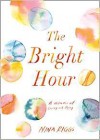


![Blue Nights by Didion, Joan 1st (first) Edition [Hardcover(2011)] - Joan Didion](http://booklikes.com/photo/max/100/150/upload/books/94/73/f8c13fa4b30fe09500884bb72fe3e11e.jpg)
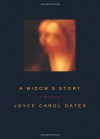




 6
6
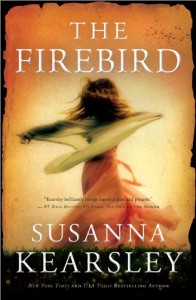

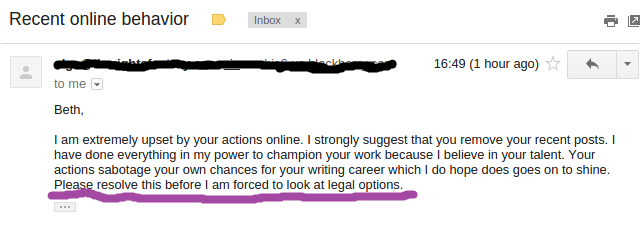
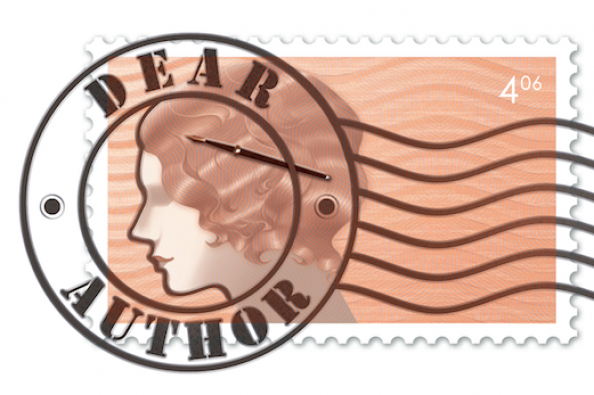
 3
3



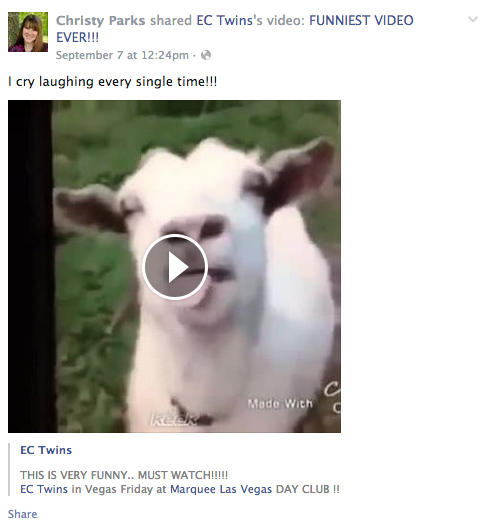







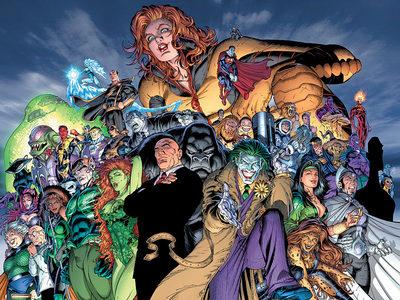


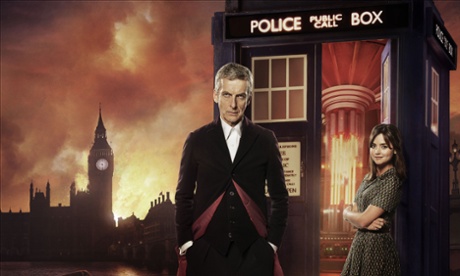








![Blue Nights by Didion, Joan 1st (first) Edition [Hardcover(2011)] - Joan Didion Blue Nights by Didion, Joan 1st (first) Edition [Hardcover(2011)] - Joan Didion](http://booklikes.com/photo/max/50/80/upload/books/94/73/f8c13fa4b30fe09500884bb72fe3e11e.jpg)
